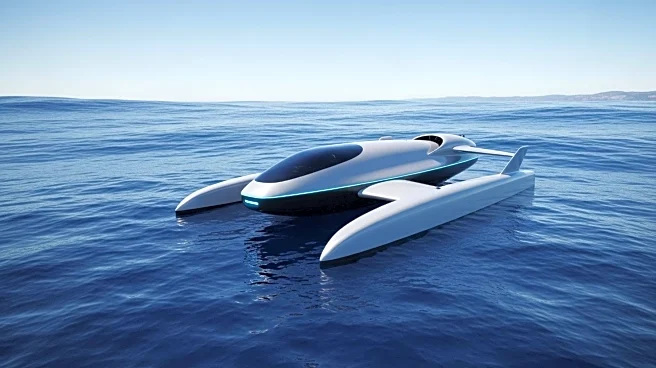What's Happening?
HavocAI Inc., a company based in Providence, Rhode Island, has announced the acquisition of $85 million in new funding to scale its autonomous marine platforms. The funding will be used to enhance the company's collaborative autonomy stack, which has already been demonstrated in real-world scenarios with the U.S. Navy and Army. HavocAI plans to add two more vessels to its fleet by the end of the year, including the 100-ft. Atlas multi-mission vessel. The company has delivered over 30 fully operational products to the U.S. military and has signed partnership agreements with major industry players such as Lockheed Martin and PacMar Technologies.
Why It's Important?
The funding is significant as it highlights the growing strategic importance of autonomous marine systems in national defense. HavocAI's technology offers the potential to create self-organizing fleets that can be managed by a single operator, which could revolutionize military operations. The U.S. military's interest in building thousands of autonomous boats underscores the demand for advanced maritime security capabilities. The investment also reflects international recognition of HavocAI's strategic importance, particularly among allies focused on maritime security and deterrence capabilities.
What's Next?
HavocAI plans to use the funding to integrate autonomy into new vessel types and sizes, increasing the capability and interoperability of its platforms. The company aims to expand its operations beyond U.S. areas of responsibility, providing support to international allies, especially in the Indo-Pacific region. The funding will also enable HavocAI to increase manufacturing capacity to meet the U.S. military's demand for autonomous boats. The company is poised to collaborate with local partners in Taiwan, further expanding its global reach.
Beyond the Headlines
The development of autonomous marine systems by HavocAI could lead to long-term shifts in maritime security strategies. The ability to deploy self-organizing fleets may reduce the need for large human crews, potentially lowering operational costs and increasing efficiency. Ethical considerations regarding the use of autonomous systems in military operations may arise, prompting discussions on the balance between technological advancement and human oversight.










